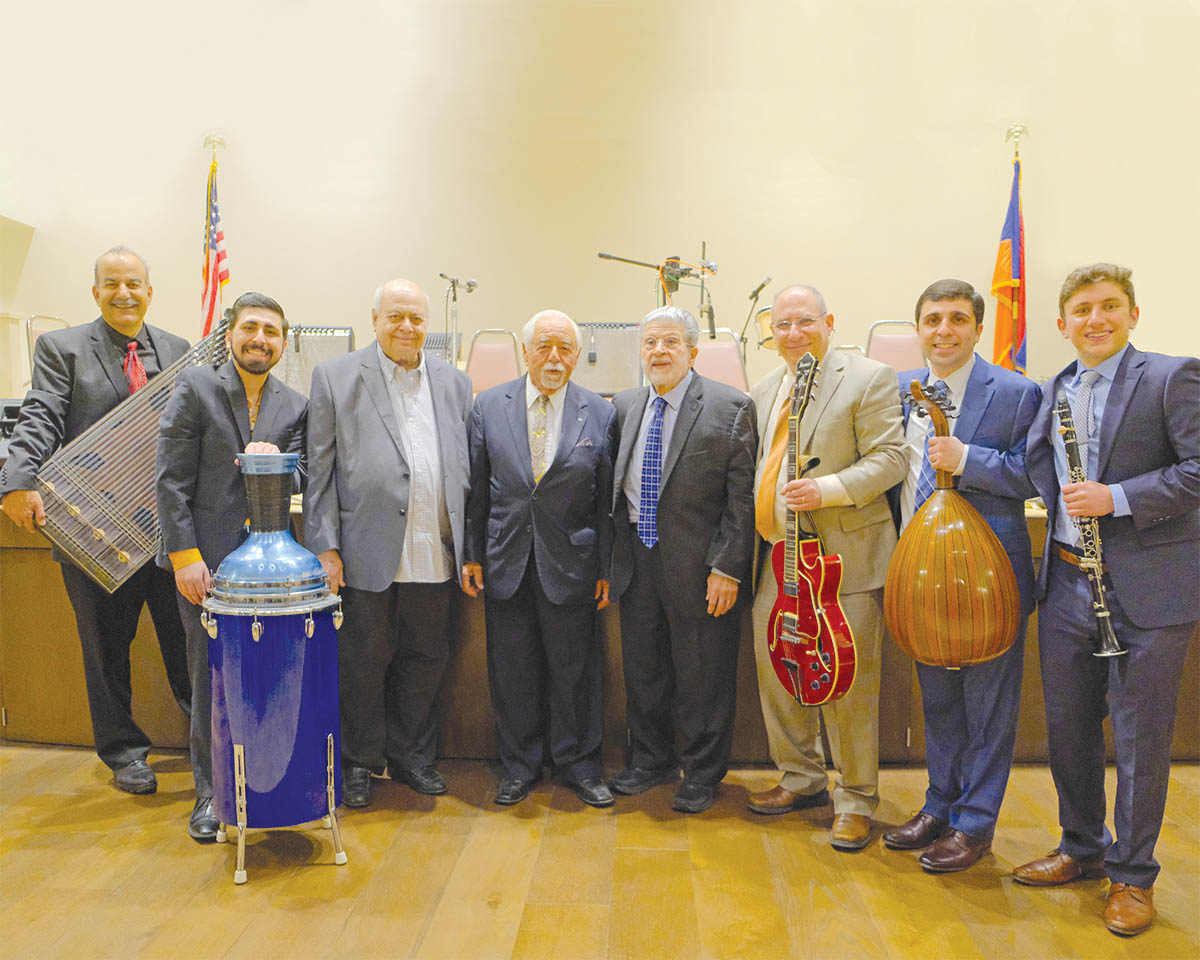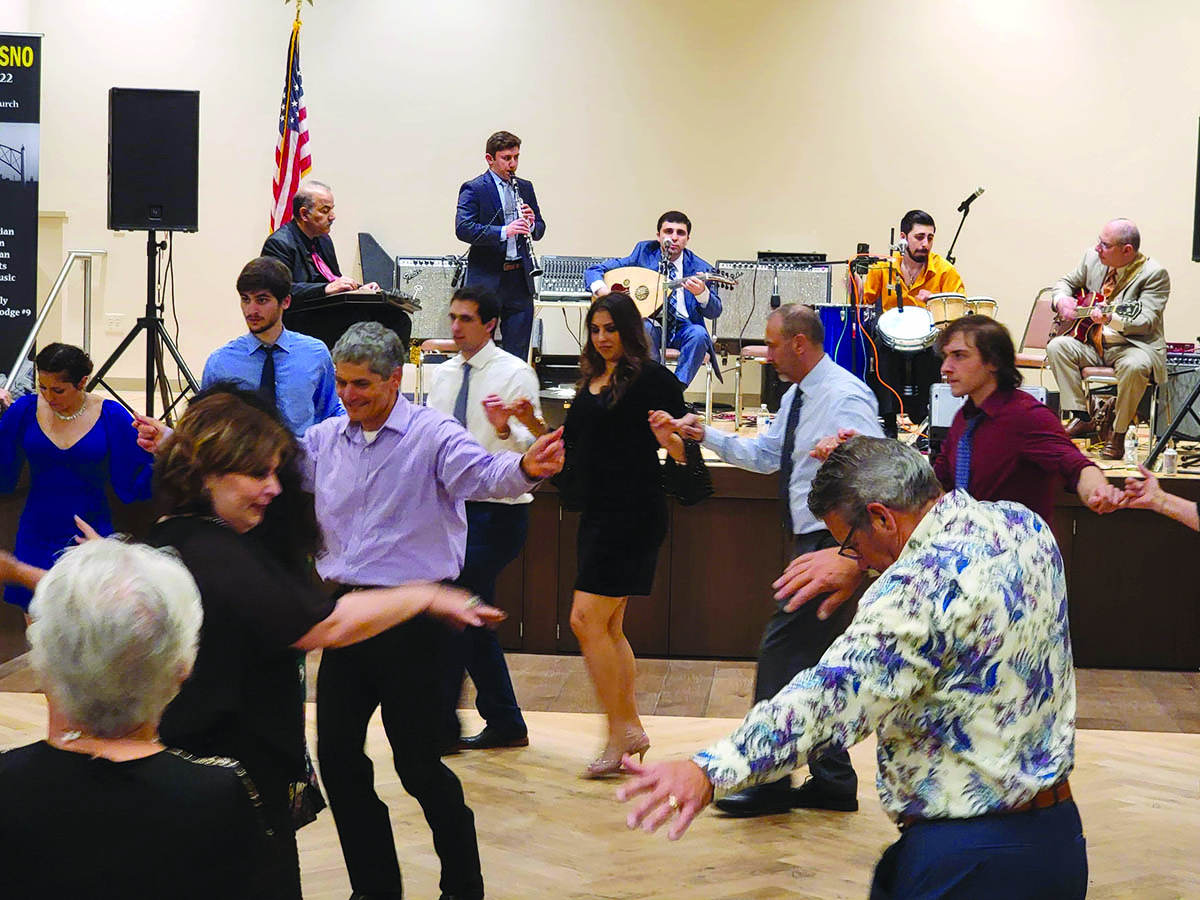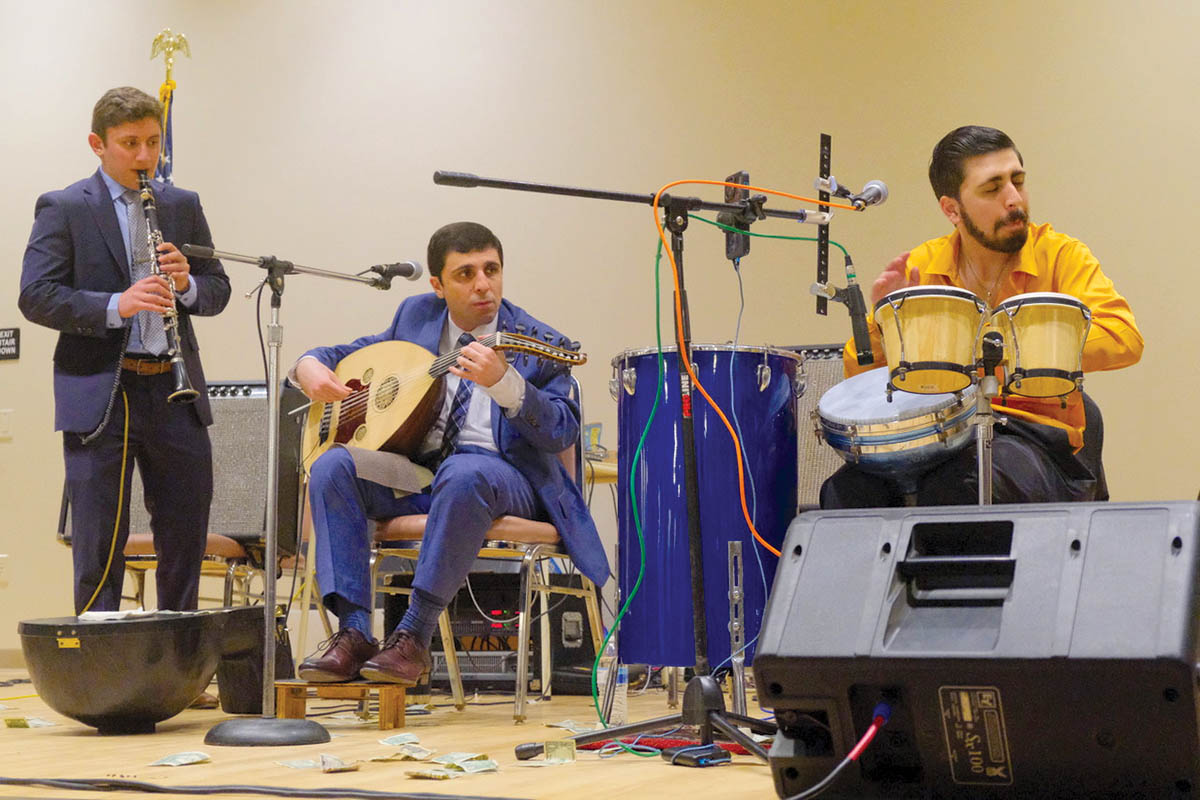
“Kef Time Fresno.” Photo: Avo Kambourian
Carina Tokatian
Staff Writer
Walking into “Kef Time Fresno” felt like entering any Armenian’s nirvana. There was lavish food, spirited conversations, lively laughter, warm hugs, and smiling faces everywhere. Most of all, there was the lively group of dancers and musicians—the stars of the evening—who offered any spectator a taste of sublimity.
“Kef Time Fresno” was held on the evening of Saturday, February 26, in the Holy Trinity Armenian Apostolic Church Social Hall. The net proceeds of “Kef Time Fresno” were donated to the Armenian Studies Program at Fresno State.
The Kef Time Legacy Band hosted over 400 people for the kebab dinner and dance. The event was sponsored by the Kef Time Productions Committee headed by Andrew Hagopian, and the food was prepared by the Holy Trinity Men’s Society. The Kef Time Legacy Band is composed of: Phillip Hagopian, performing on the oud and vocals; Michael Kamalian on clarinet; Andrew Hagopian, grandson of Oudi Richard Hagopian, playing drums; Mal Barsamian on guitar; Jim Karagozian on the kanun.
The Kef Time Band has been in existence since the late 1960s when the group first produced “Kef Time Las Vegas.” This was followed by three more albums: “Kef Time Fresno,” “Kef Time Detroit,” and “Kef Time Hartford.” The original members of the “Kef Time Fresno” group were Richard Hagopian, on oud and vocals, Hachig Kazarian on the clarinet, Buddy Sarkissian on the drums, Jack Chalikian on the kanun, and Ed Derderian playing the bass guitar.
The Kef Time Fresno band began hosting annual events at Fresno’s Rainbow Ballroom on April 20, 1974. They were also often invited to perform at events across the nation, such as weddings and picnic.
The group coined its name from the genre of music they played — “kef” music which translates to “party” music in Armenian. These folk songs date back to nineteenth-and-twentieth-century Western Armenian villages and eventually made their way to the Central Valley’s Diaspora community.
Andrew Hagopian noted how the festivities began to wane by the mid-1980s, as many Armenians began to assimilate. The “Kef Time Band” held its last formal event on February 15, 1986, though they continued to play at weddings and other private events.

Photo: ASP Archive
This did not hinder Andrew, however, from resurrecting his grandfather’s band. “It has always been a dream of mine to throw my own dance,” Andrew said. Especially in light of the pandemic, he recognized how “people have been cooped up too long.” So, as COVID cases began to decline in the Valley, he was determined to revitalize the social event of his grandfather’s generation. And he certainly was not alone in his vision.
Within two months, the event sold out with nearly a third of the attendees traveling from Massachusetts, Michigan, Illinois, Wisconsin, New York, Nevada, and Southern and Northern California.
“I enjoy looking out and seeing the community take part in their culture,” asserted Andrew. Considering the Genocide and the recent situation in Artsakh, he sees the necessity of Armenians fostering a “reconnection to their roots.” He emphasized how “there are nations and forces working to erase our history, so we have to claim what is ours.” And a significant aspect of that history is the folk music which Andrew recognized as untainted by synthesizers and the modern instruments of Western culture. “I see it as a service that we are preserving our ancestors’ roots, their identity” he commented.
But what Andrew enjoys most about being in the band is working alongside his colleagues. He recalled how “in that moment, it is almost as if our minds are linked… each person is doing their own thing, but in the end, we’re producing one uniting sound.”
For Michael Kamalian, the pleasure similarly lies in “creating a brotherhood between the musicians.”

Photo: Avo Kambourian
“I don’t see them as ‘co-workers’, it’s a family of great people who work together to create memories and carry on the tradition,” said Michael. Hooked on the music at a young age, Kamalian was inspired to become involved in the band with the encouragement of Richard Hagopian and Hachig Kazarian. “It’s very humbling that I have the opportunity to create that same feeling for the next generation” he stated.
Phillip Hagopian also added how “it’s incredibly rewarding and fulfilling to see a new generation enjoy this music and to see the whole community—both younger and older people—come together and thoroughly enjoy a shared experience.”
Ultimately, Andrew believes that he has made his grandfather proud to see his legacy continue for another generation.
The success of the February 26 event has led to discussion about more events in the near future. As Andrew passionately stated, “There’s nothing more important to me than bringing together the whole community.”
 Hye Sharzhoom Armenian Action
Hye Sharzhoom Armenian Action